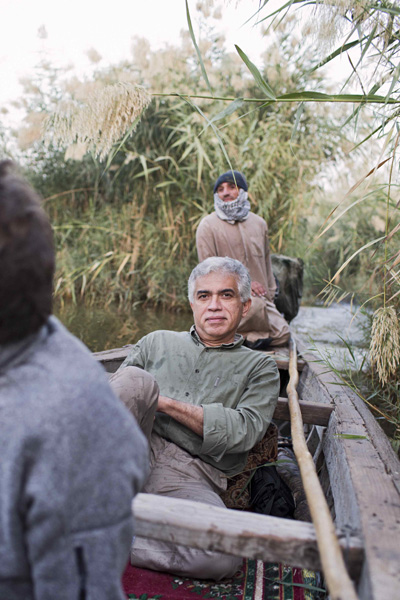
Azzam Alwash
In the mid-1990s, after the invasion of Kuwait, Saddam Hussein was battling uprisings by the Shiite Arabs. Many of the rebels hid in the marshlands of Mesopotamia, located between the Tigris and Euphrates rivers and widely considered the birthplace of civilization. These wetlands were also a lush home for water buffalos, lions, aquatic wildlife and an essential migratory stop for birds.
Hussein was furious with the Sumerian people who lived there and the refuge they provided to his enemy, so he burned, drained and poisoned this fragile ecosystem in retaliation, turning the Garden of Eden into a dust bowl.
During that time, Azzam Alwash was living in asylum in the United States, enjoying a successful career as a civil engineer. Growing up in Iraq, however, he’d spent many days in the marshes with his father, who was head of the irrigation department. He watched the destruction from afar — heartbroken.
When Hussein lost power, Alwash returned to his childhood home and realized that he wanted to restore the marshes. He started the nonprofit Nature Iraq and went to work.
Alwash first told his story at Mountainfilm 2004 and talked about how bringing nature back to life was not nearly as hard as staying alive in Iraq's post-war sectarian violence. He returned in 2008 with tales of success and significant restoration of the marshlands. This year, after winning a 2013 Goldman Environmental Prize, he will update us on his latest achievements and challenges, which include an extensive series of dams along the volatile Turkey-Syria border that would choke the water into Iraq and the marshlands.